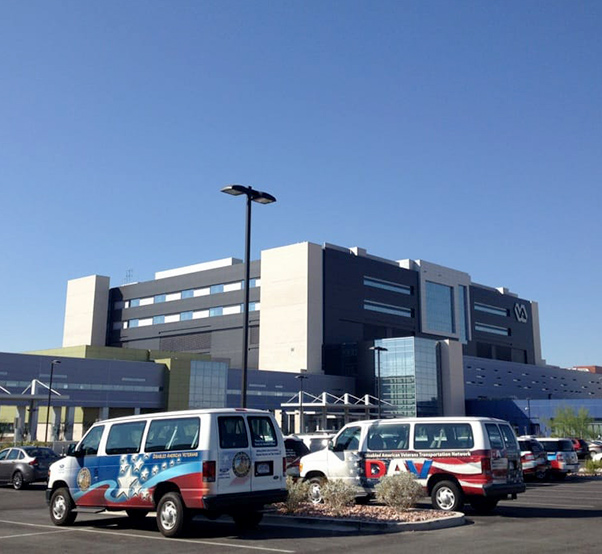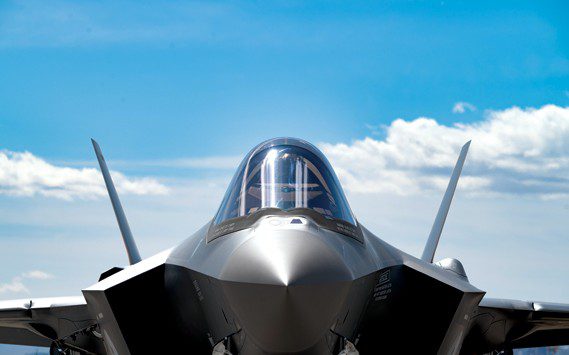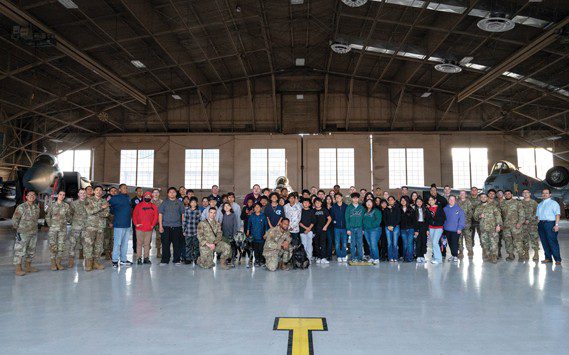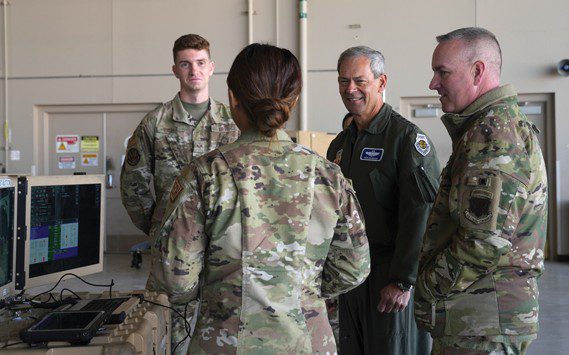Leadership at the VA Southern Nevada Healthcare System changed June 10 as new Director William J. “Bill” Caron joined the staff.
As VASNHS’ chief executive officer, Caron assumes responsibility for one of the fastest growing VA health care systems in the nation, providing the delivery of care and services to more than 63,000 Veterans across Southern Nevada.
In his new role, Caron is responsible for more than 2,700 staff, a $540 million annual operating budget and day-to-day operations of a VA Medical Center in North Las Vegas and six VA clinics, which provide primary care and mental health services to veterans at locations in Las Vegas, Henderson, Pahrump and Laughlin. Caron also oversees a Community Resource and Referral Center based in Las Vegas, which provides resources and services to homeless veterans throughout the region, as well as a Veterans Recovery Center in North Las Vegas, which provides mental health intensive case management, treatment coordination, peer support services and counseling.
Caron returns to VASNHS, where he previously served as associate director from 2014 to 2017, which included a nine-month stint as acting director in 2015. When asked about why he wanted to return to Southern Nevada, Caron cited growth, opportunities and relationships.
“If you look at where we started as a series of clinics, building the medical center, getting that foundation in place, the right staff, we’ve really grown up,” he said. “What fascinates me is how quickly we’ve moved to become a level one medical facility, and I think we have the potential to become a level 1A facility [the highest complexity].
“Additionally, the opportunities return to a progressive environment in a unique city, and our established relationships with Nellis Air Force Base, our federal, state and local community partners, and veterans service organizations really spoke volumes to me,” Caron said.
Prior to assuming his current duties in Southern Nevada, Caron served as the director and CEO of the VA Southern Arizona Healthcare System in Tucson, Ariz. He said that opportunity brought him several insights that he will use as the new VASNHS director. “In Tucson, you have a facility that has been around for 90 years, and has an established academic affiliation, community partnership, and research program,” he said. “Learning [the importance of] those things in an established facility and the ability to be able to bring that knowledge back here is very exciting.”
“For years Las Vegas struggled as the only large metropolitan area without a dedicated medical school,” Caron continued. “The fact that we have a medical school here now, with the first class entering their third year, is huge. If we have a robust academic affiliation and research program, that will be how we start to grow our own providers and draw more providers here from elsewhere, once they see the infrastructure that’s in place.”
Caron’s immediate goals are to ensure VASNHS is strategically-aligned with the current VA leadership goals and priorities. “It’s a people business,” he said. “We are people helping people, at the end of the day. That means relationship building and understanding our secretary’s number one priority, which is customer service. It’s not our clinical priority, it’s ‘the’ priority.”
This also applies to his goals on building rapport within the VASNHS staff. “Culture is the first thing I want to focus on. I want to spend time with the people and the staff that make this place great,” Caron said. “I’d like to get an understanding of the things that we do well and the things that we could do better. I also want to ensure staff see me and the executive leadership team as their teammates and partners in the great family of our healthcare system and feel they can come to us whenever they need guidance, support and assistance.”
As a veteran as well as an experienced physical therapist, Caron plans to use a lifelong dedication to service in his new role as VASNHS’ director. “I practiced physical therapy for quite a few years as active duty Air Force, and served as a corpsman in the [Navy] reserves, and then went to the private sector for 14 years where I learned higher level leadership skills and earned my master’s degree in health administration. But I really missed serving, so 10 years ago I decided that with the VA I can continue to serve my country. And it’s been a great fit and I’ve never looked back.”












